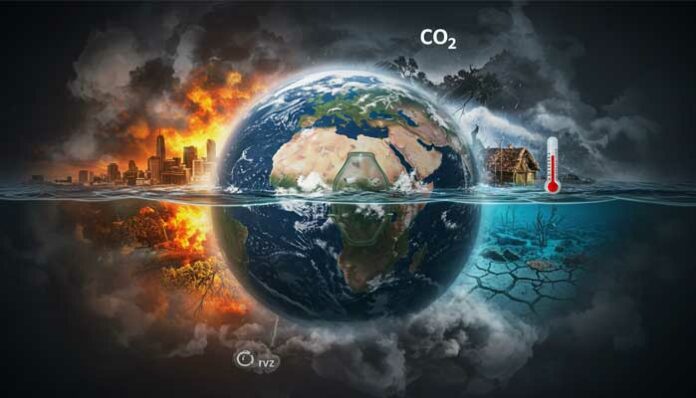CO2 impact on human health
The level of carbon dioxide (CO₂) in the air around us has climbed to 430.2 parts per million the highest it’s been in millions of years. This surprising record was shared by scientists from the Scripps Institution of Oceanography at the University of California, San Diego. Their findings have raised new concerns about how quickly our climate is changing and the worsening CO2 impact on human health.
The most recent carbon dioxide reading came from the Mauna Loa Observatory in Hawaii, a well-known center managed by the National Oceanic and Atmospheric Administration (NOAA). The report shows that CO₂ levels have gone up by 3.5 parts per million since May 2024, when they were measured at 426.7 ppm. This rise is closely linked to the increasing CO2 impact on human health, experts warn.
Extreme Weather and Global Effects of Rising CO2
Scientists have been warning for years that burning fuels like coal, oil, and gas is the main reason behind the rise in harmful gases. This new number, they say, clearly shows that the world is not staying true to the climate promises it made earlier, which in turn worsens the CO2 impact on human health worldwide.
A spokesperson from the Scripps Institution shared that the Earth hasn’t had this much carbon dioxide in its air for around three to five million years. They also mentioned, “We’re now stepping into a time we’ve never faced before.” underlining the urgent need to address the growing CO2 impact on human health.
Scientists say that the rising carbon dioxide in the air is already making weather more extreme in many parts of the world. From unbearable heatwaves and long dry spells to sudden heavy rains and serious flooding such events are now happening more often and with greater impact. All of which contribute to the worsening CO2 impact on human health.
Carbon dioxide isn’t just hurting life on land it’s quietly affecting our oceans too. The seawater is turning more acidic, and many people don’t even realize how serious this is. This acid in the water makes it harder for sea animals like corals, shellfish, and plankton to build their shells, putting the entire ocean ecosystem in danger , which also indirectly influences the CO2 impact on human health.
While Mauna Loa Observatory is trusted for tracking long-term carbon dioxide levels, it doesn’t reflect every region’s situation. Take the Southern Hemisphere, for example its seasons work the opposite way to the North, and some stations there haven’t yet seen CO₂ cross the 430 ppm point, which means the CO2 impact on human health might vary regionally.
Across the world, different stations keep an eye on the air we breathe and share their findings with the Global Greenhouse Gas Reference Network. This worldwide system helps experts track changes in our climate and guides smarter actions to keep our planet safe, aiming to reduce the worsening CO2 impact on human health.
The recent increase in carbon levels has raised new concerns and stronger calls for urgent, fair steps to fight climate change. At the Astana International Forum, climate experts and world leaders came together to find faster ways to cut down harmful emissions. They made it clear that climate solutions should be just and helpful for all whether a country is rich or still growing to lessen the global CO2 impact on human health.
For a long time, scientists have been warning us, and now the signs of climate change are becoming clearer everywhere. Still, harmful gases from burning fuels keep going up. Experts say that if we don’t take quick steps to use less fossil fuel and switch to cleaner energy sources, our planet could face even bigger climate problems very soon with a deeper CO2 impact on human health.
This isn’t something we’ll deal with in the future it’s already turning lives upside down around the world,” said a speaker at the forum. “We know the steps we need to take, but the real problem is, we’re just not acting quickly enough to tackle the growing CO2 impact on human health.”
This report comes at a time when regions like South Asia and sub-Saharan Africa are already facing harsh weather and growing food shortages. The changing climate is making life even harder for people living in these areas.
With the COP30 summit just around the corner, scientists are hoping these new climate figures will push both leaders and the public to finally treat this crisis with the urgency it demands especially the urgent CO2 impact on human health.
For authentic news and the latest updates, stay connected with: DumdaarPoint.com

